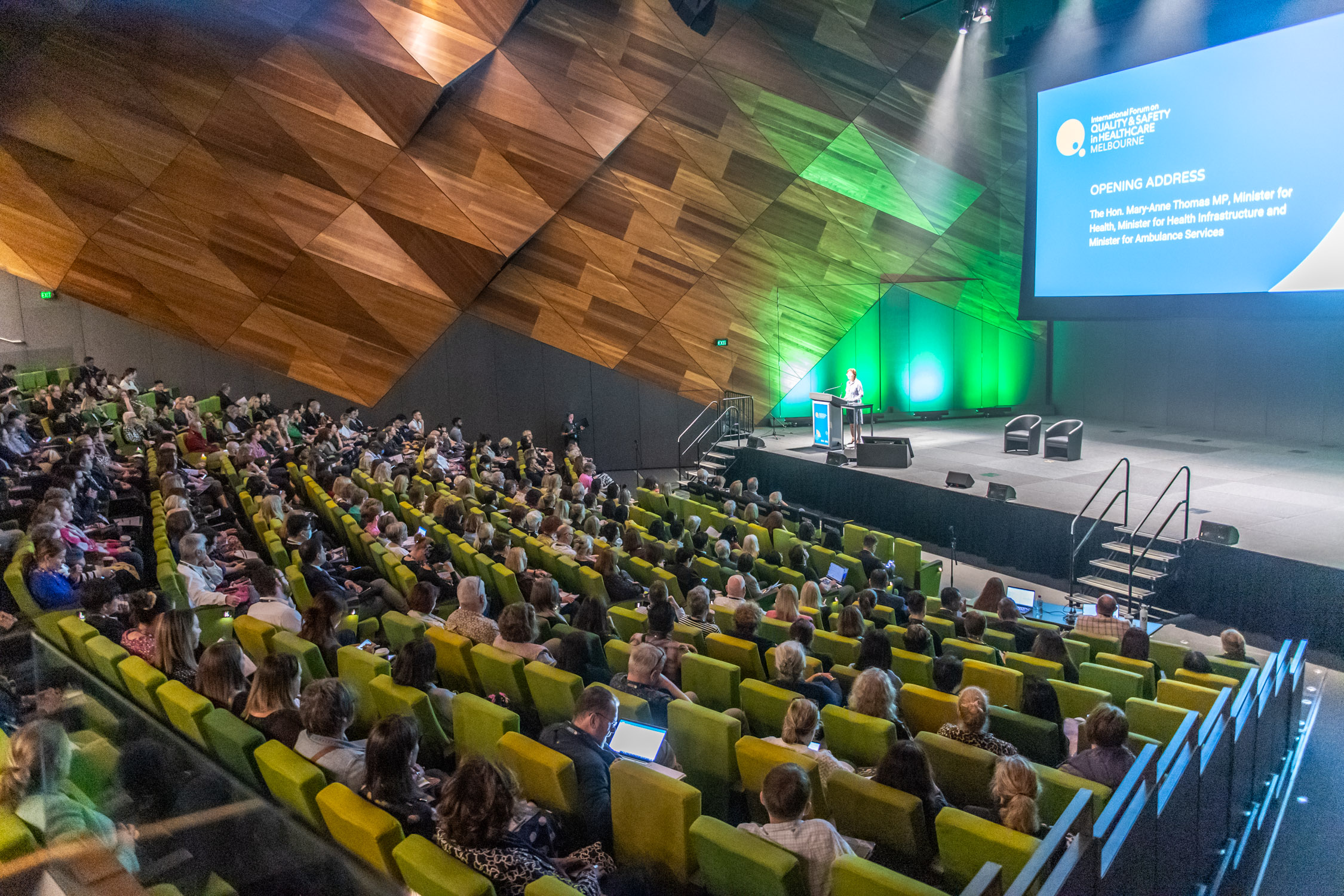Registration for attending Brisbane 2024 online is now closed
The programme for online attendees
Online attendees will be able to access the below live programme on Wednesday 6 November, Thursday 7 November and Friday 8 November.
You can view the programme for in-person attendees and read more about the programme theme ‘Pushing Boundaries’.
Please note that the programme for online attendees is subject to change.
Programme timings are in Brisbane Time (AEST) – GMT +10.
Wednesday 6 November
10:30-10:40
15:55-16:40
- Keynote 2: You’re already in a relationship with AI (with Liesl Yearsly Akin; Australia)
Thursday 7 November
09:00-09:10
- Welcome & Introduction
09:10-10:35
- Keynote 3: What matters most and what does it take to lead equity? (with Tanya Hosch Australian Football League, Australia and Debbie Sorensen Pasifika Medical Association Group of charitable companies; New Zealand)
11:05-12:05
- Part 1: Using workload capacity indicators to evaluate patient deterioration early warning tools (Anton van der Vegt The University of Queensland; Australia)
- Part 2: Strategies to reduce extubation failure in neonatal ICU: a quality improvement approach (Triptee Agrawal Post Graduate Institute of Medical Education and Research; India)
13:10 – 14:40
S5: Shifting from “me” to “WE”
- Part 1: Shifting from “me” to “WE” (Duncan Brown Culture Craft; Australia and Robert Styles Prosocial World; Australia)
15:15-16:15
S9: Masterclass: Understanding variation to inform improvements
- Understanding variation in data to inform improvement (Lloyd Provost Associates in Process Improvement and IHI; USA)
16:15-16:50
- Keynote 4: Pushing Boundaries: A Journey of Innovation and Inspiration (with Jana Pittman Doctor, Athlete, and Author; Australia)
Friday 8 November
09:05-09:50
- Keynote 5: Health Workforce Projections: A Global Call to Action (with Simon Kuestenmacher The Demographics Group; Australia)
11:05-12:05
S13: Improving patient outcomes through effection patient flow systems
- Part 1: Study on patient flow in Queensland’s public hospitals (Justin Boyle CSIRO; Australia and Andrew Staib Metro South Health; Australia)
- Part 2: No! waitlists are not inevitable: sustaining timely access to outpatient services (Annie Lewis Eastern Health; Australia)
13:05-14:35
S17: Driving change in pre-term and early term birth
- Part 1: Every week counts: A National Collaborative to prevent pre-term and early term births across Australia (John Newnham Australian Preterm Birth Prevention Alliance; Australia)
- Part 2: Driving change to reduce preterm and early term birth (Deyna Hopkinson Clinical Excellence Queensland; Australia)
- Part 3: Safer baby bundles in Queensland using a modified breakthrough series collaborative approach (Michael Rice and Colette McIntyre Clinical Excellence Queensland; Australia)
15:05-15:35
- Rapid-fire poster presentations: the finalists
The Poster Champions will select eight top scoring oral poster presentations from Thursday and Friday.
The authors will take to the main plenary stage to present their projects, giving you, the audience, an opportunity to vote for the winning poster project.
15:35-16:05
- Keynote 6: Now what? Are we pushing boundaries? (with Kedar Mate IHI; USA)
Online delegate fees and packages
| Online Access (Tuesday 7 November and Friday 8 November 2024) | |
| Individuals | AUD754.60 |
| Groups of 5-20 (10% discount)* | AUD617.40 |
| Groups of 21-50 (15% discount)* | AUD583.10 |
| Students ** | AUD226.60 |
| Low-Income countries (LIC)** | AUD226.60 |
| Lower-Middle-Income countries (LMCs)** | AUD301.40 |
*Group savings apply when a minimum of 5 or more individuals from the same organisation register at the same time.
**See criteria below for booking with our special discounts, applicable for students and delegates from Low Income/Lower-Middle-Income countries.
The prices in the table above are in AUD (Australian dollars), per delegate and are exempt of VAT.
All bookings should be made online and are payable by credit/debit card or invoice. We can only issue invoices for groups of five or more people from the same organisation.
Group bookings
For bespoke packages for larger groups (50+ delegates), please email Warren Lee, Manager for Strategic Partnerships & Alliances, at wlee@bmj.com.
Special attendance rates
Please note all of our special rates apply to our standard registration fees only. We are unable to subsidize or cover any costs associated with joining the online conference.
Student rates
As a student in full-time education, you can apply for an online discounted student place by sending one of the below to Marina Antanasiotis at mantanasiotis@bmj.com:
- A copy of your student card which clearly displays the date of validity in numerical form
- An official letter issued by the Dean of your university confirming you will be in full-time education at the time of the conference (7-8 November 2024)
If your application is successful, you will be provided with further instructions on how to register with our student rates.
Lower-Middle-Income and Low-Income Countries rates
Only delegates who are residents of and are working in Low-Income (LICs) and Lower-Middle-Income (LMCs) countries can qualify for our discounted rates. Please check the World Bank country classification to see if you are eligible.
- When registering, please select to register as a delegate and enter your full address on the booking details page – this will be used to verify your registration
- The discounted rate will be automatically applied when you choose a country listed as LMC or LIC on the World Bank country classification list while filling in your personal details
- You may be contacted to provide proof of residency
Delegate Booking Terms and Conditions
Please read our Registration Terms & Conditions before booking.



